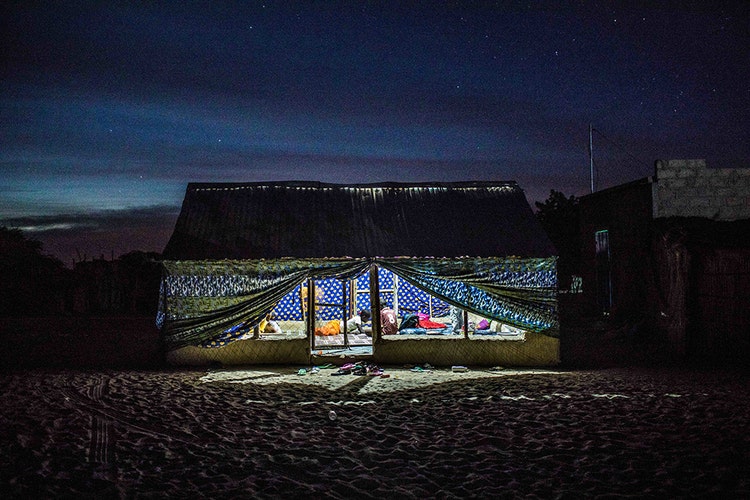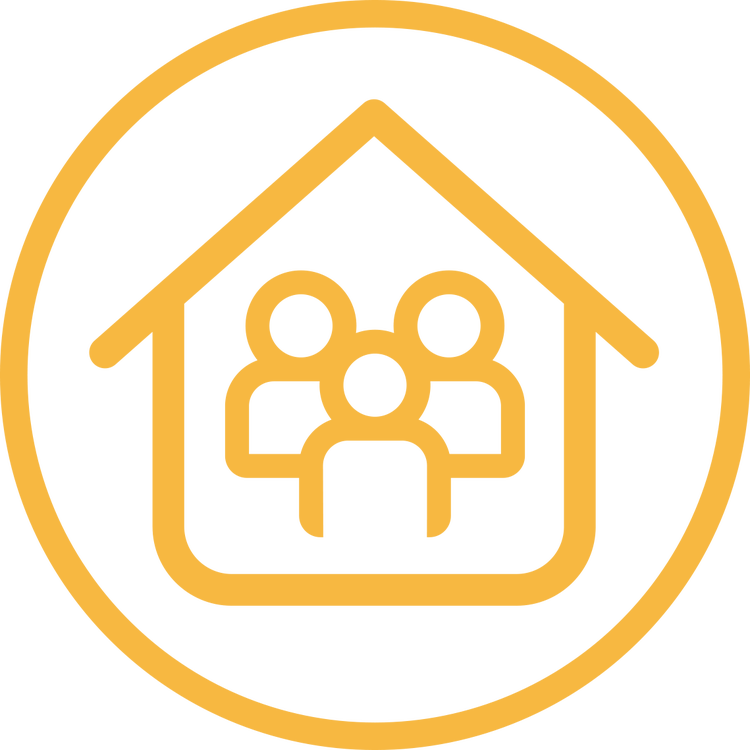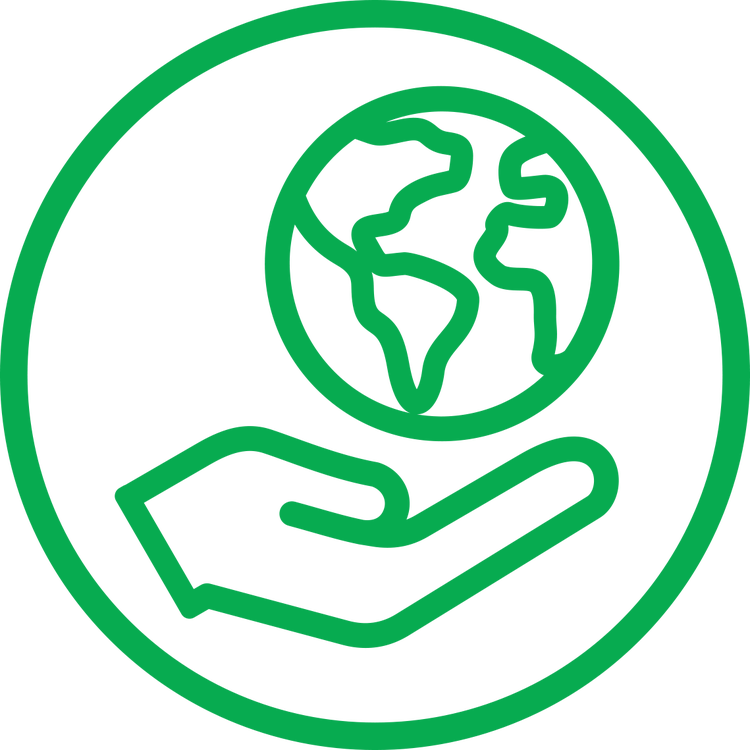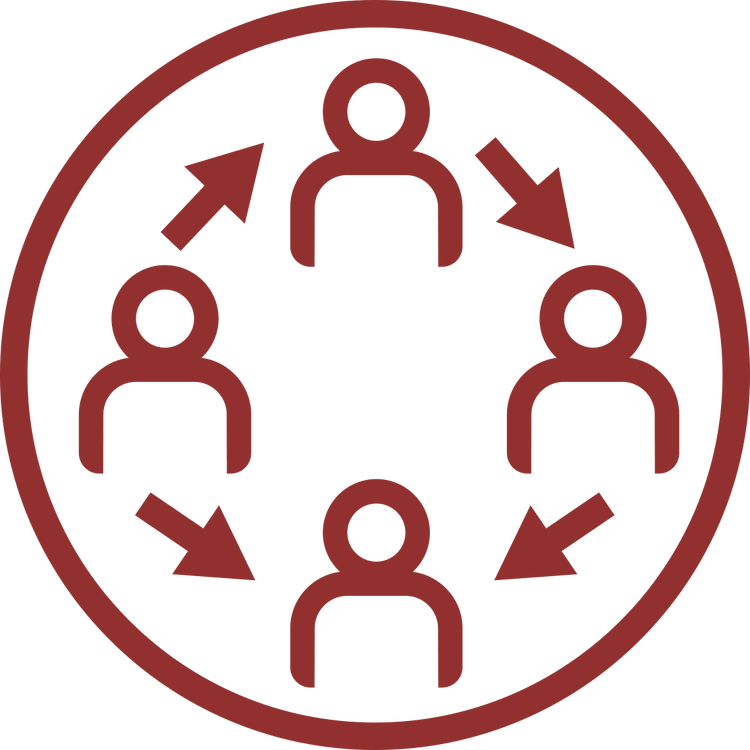Who We Are
We exist to create a world free of poverty on a livable planet.
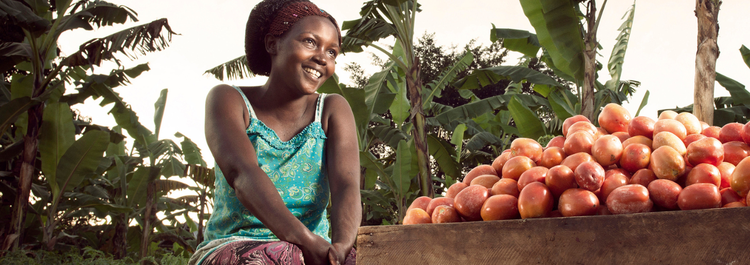
Our mission is to end extreme poverty and boost shared prosperity on a livable planet. This is threatened by multiple, intertwined crises. Time is of the essence.
We are writing a new playbook to drive impactful development that is:
- Inclusive of everyone, including women and young people.
- Resilient to shocks, including against climate and biodiversity crises, pandemics and fragility.
- Sustainable, through growth and job creation, human development, fiscal and debt management, food security and access to clean air, water, and affordable energy.
To achieve this, we will work with all clients as one World Bank Group, in close partnership with other multilateral institutions, the private sector, and civil society.
Five Institutions
One World Bank Group
Working together to reduce poverty and promote sustainable development with knowledge, financing, and expertise.
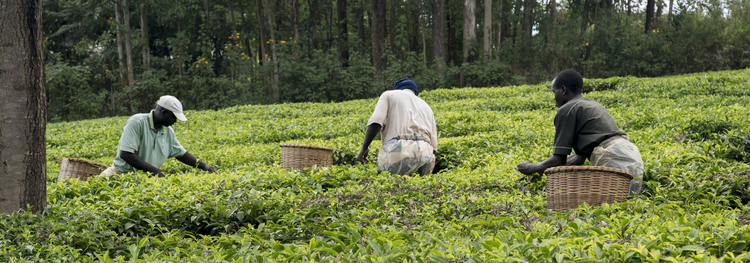
IBRD
International Bank for Reconstruction and Development
Provides financial products and policy advice to help middle-income and creditworthy low-income countries reduce poverty and respond to regional and global challenges.
IDA
International Development Association
Offers grants and low-interest loans help low-income countries invest in their futures, improve lives, and create safer, more prosperous communities around the world.
IFC
International Finance Corporation
Advances economic development and improves the lives of people by encouraging the growth of the private sector in developing countries.
MIGA
Multilateral Investment Guarantee Agency
Provides political risk insurance (guarantees) for projects in a broad range of sectors in developing member countries, covering all regions of the world.
ICSID
International Centre for Settlement of Investment Disputes
The world’s leading institution devoted to international investment dispute settlement.
Measuring our impact and Progress
We’re transforming how we evaluate our progress toward a world free of poverty on a livable planet.
our priorities
Tackling Complex, Intertwined CHALLENGES with knowledge, experience, and innovation
Promote global health, inclusive education, and social protection.
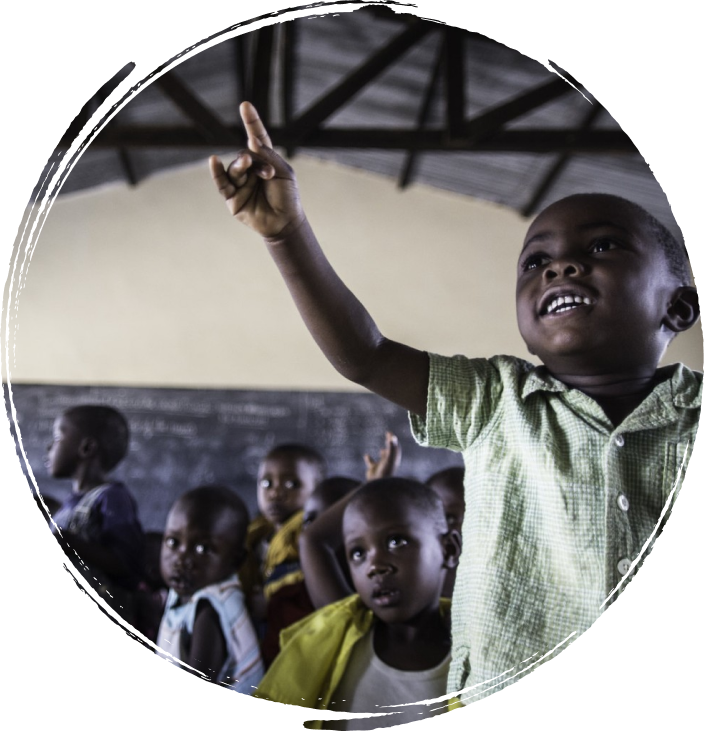
Invest in projects, policies, governance, and systems that create opportunity and prosperity.
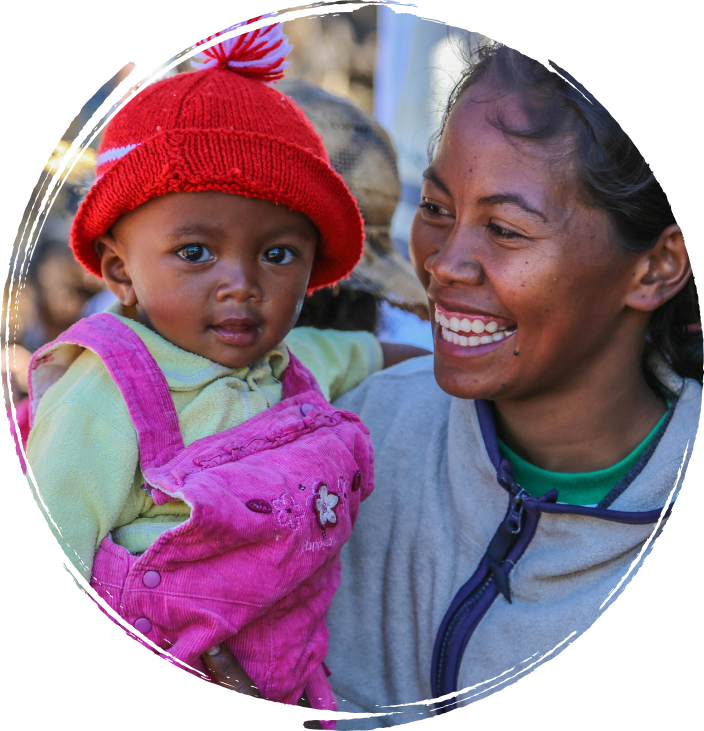
Provide sustainable food systems, water, and economies for healthy people and a healthy planet.
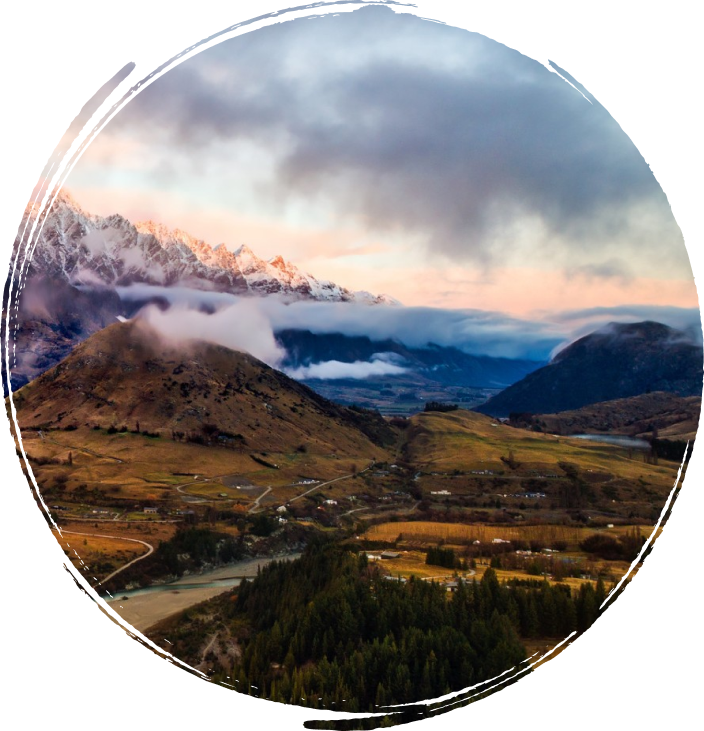
Develop safe and sustainable energy, transportation, and urban mobility.
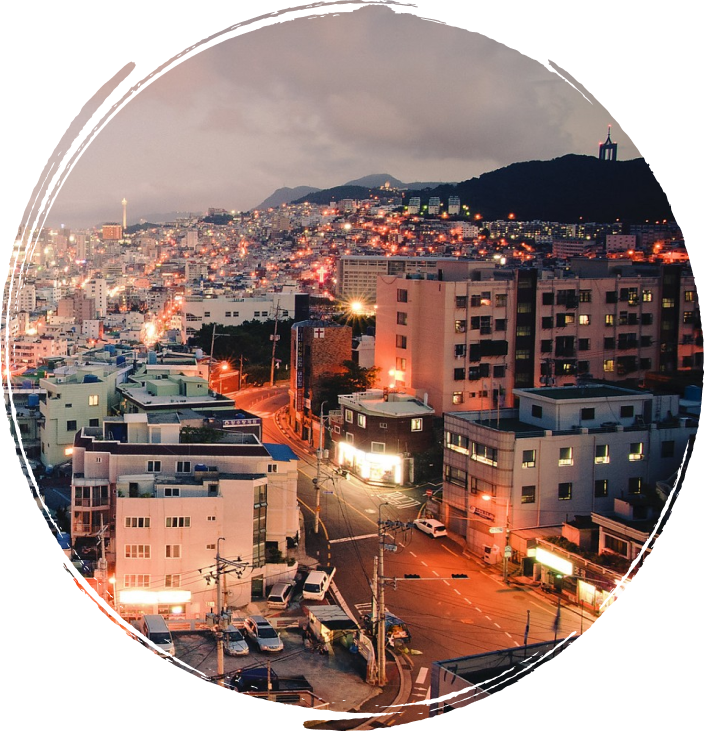
Accelerate digital access to create economic opportunity and to transform lives.
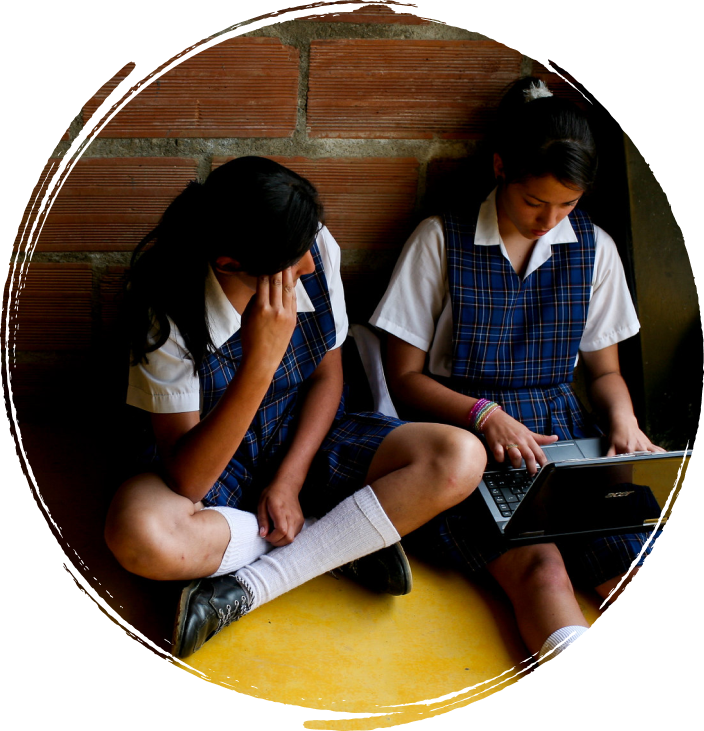
Issues affecting all areas of development.
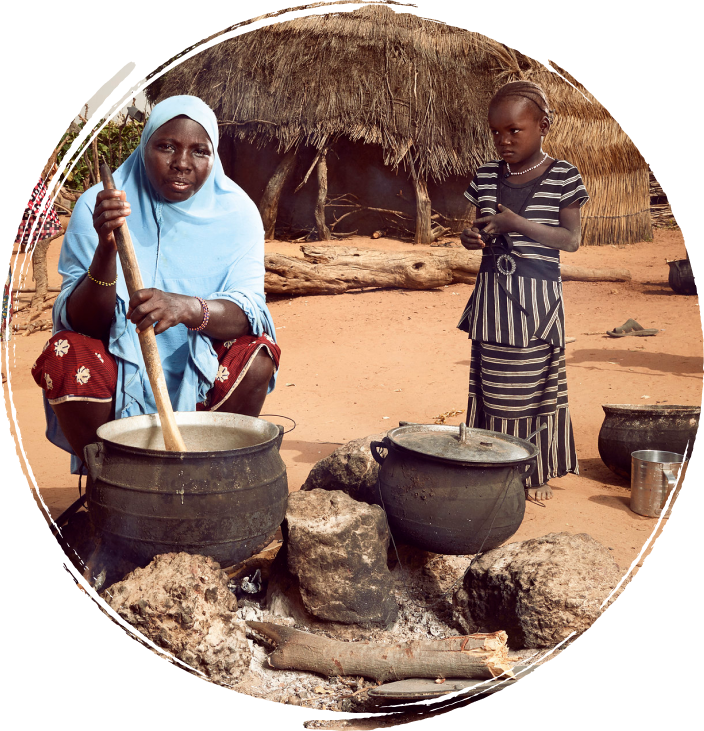
Leadership
“Business as usual is not going to change the world for our grandchildren.”
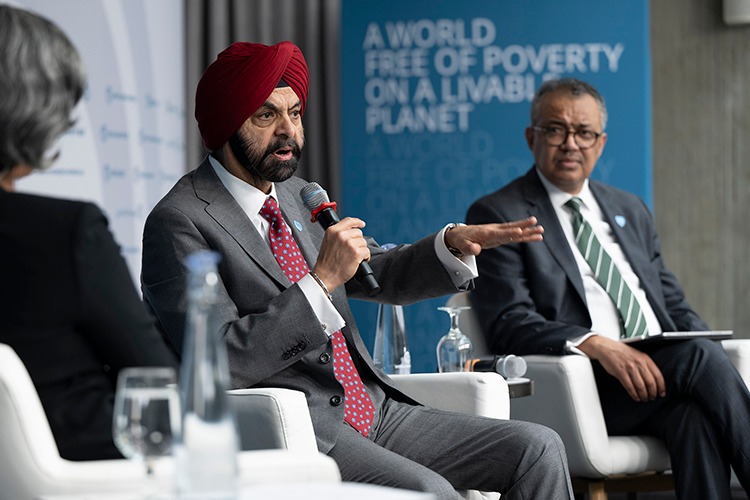
Ajay Banga, President, World Bank Group and Dr. Tedros Adhanom Ghebreyesus, Director-General, World Health Organization.
Partner for People and the Planet
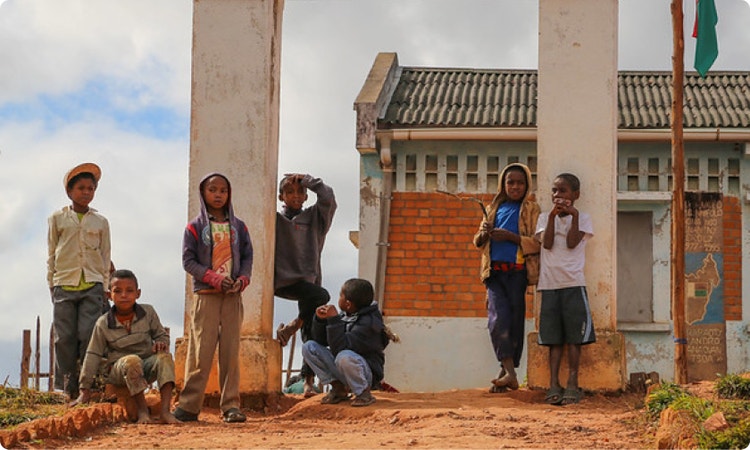
The world's challenges are increasingly complex. Solving them requires strong global partnerships with governments, communities, NGOs, and businesses.
Accountable to ourselves and the people we serve
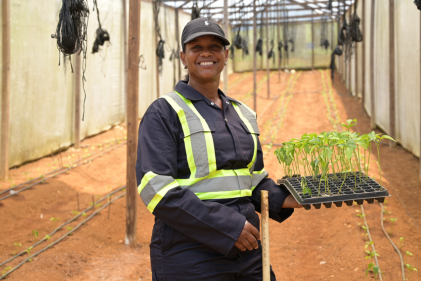
Trust is crucial to our work. We strive to be open, transparent, and participatory.
Open Data AS AN ESSENTIAL public GOOD
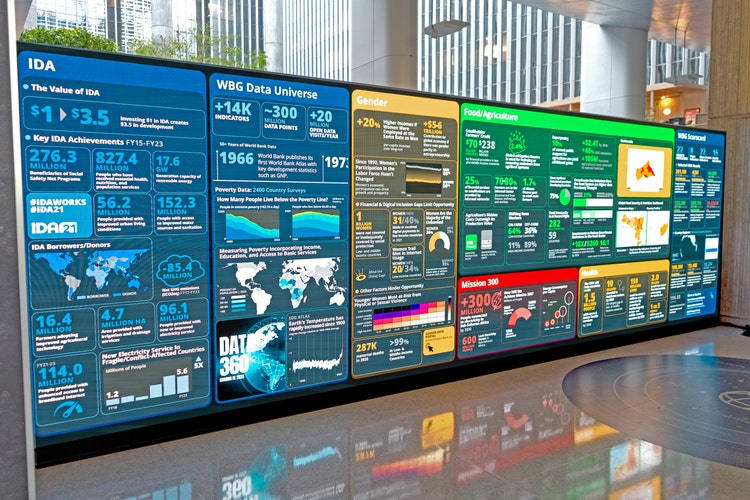
Our data initiatives inform and empower citizens, researchers, and changemakers around the world.
HISTORY
80 Years of Change 1944 to 2024
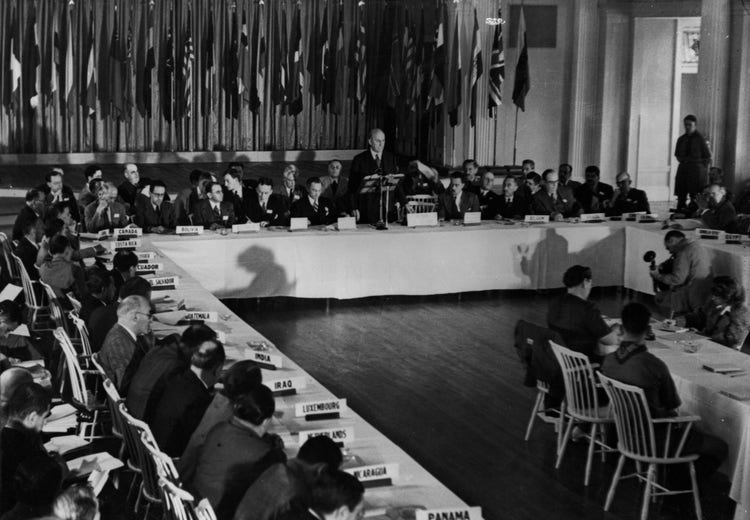
U.S. Treasury Secretary and Bretton Woods Conference President Henry Morgenthau Jr. speaks to delegates at the Bretton Woods Conference in July 1944. This conference resulted in the formation of the International Monetary Fund (IMF) and the International Bank for Reconstruction and Development (World Bank).
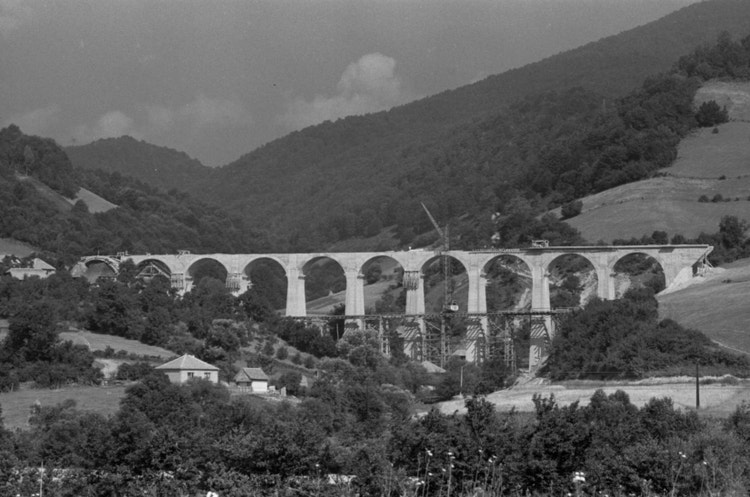
Construction in 1965 of a new railway line running from Sarajevo to Ploče in Yugoslavia with financial assistance from the World Bank. When the Marshall Plan took over post-war reconstruction efforts in Europe, the World Bank quickly shifted to funding infrastructure projects around the world.
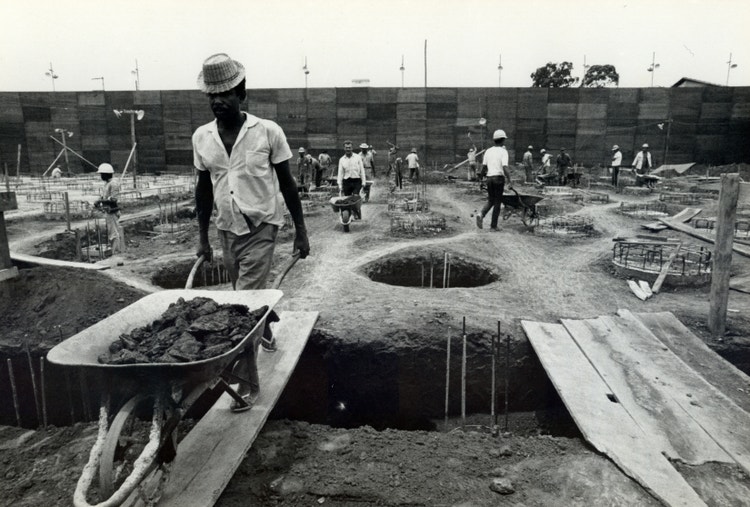
Construction of a reservoir in São Paulo, Brazil, in 1973, with World Bank funding, aimed to improve water supply and sewerage services in and around the city. This was the first comprehensive action taken to restore ecological balance in the rivers and part of the Bank’s first loan for environmental projects.
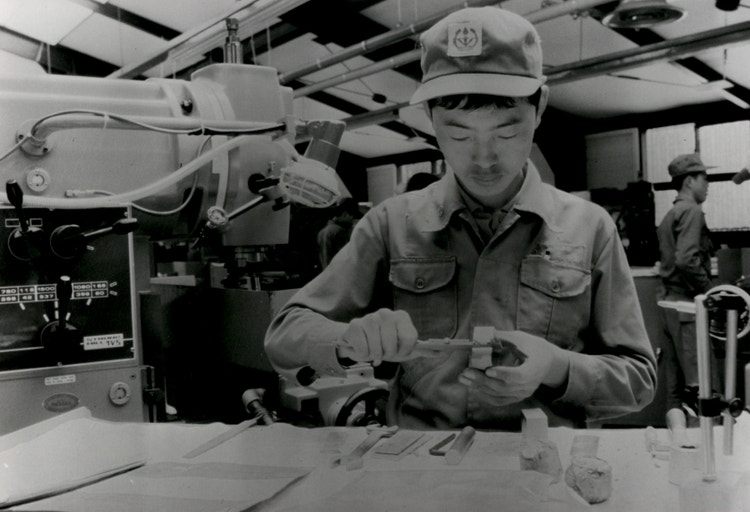
A student in the Vocational Training Institution in Pusan, Korea, in 1980. The World Bank approved a loan of $23 million to Korea to finance a vocational training project designed to support the country’s continuing manpower development program.
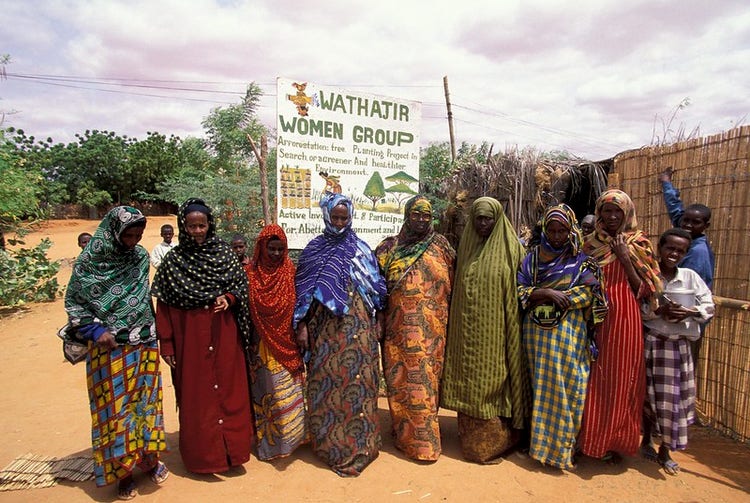
A local women’s group in Kenya, 2008. In collaboration with the United Nations’ Millennium Development Goals and the Sustainable Development Goals, the World Bank entered the new century emphasizing community-driven development, aid coordination, safeguarding vulnerable groups, and addressing climate change.
2024 Annual Report
A Better Bank
for a Better World
